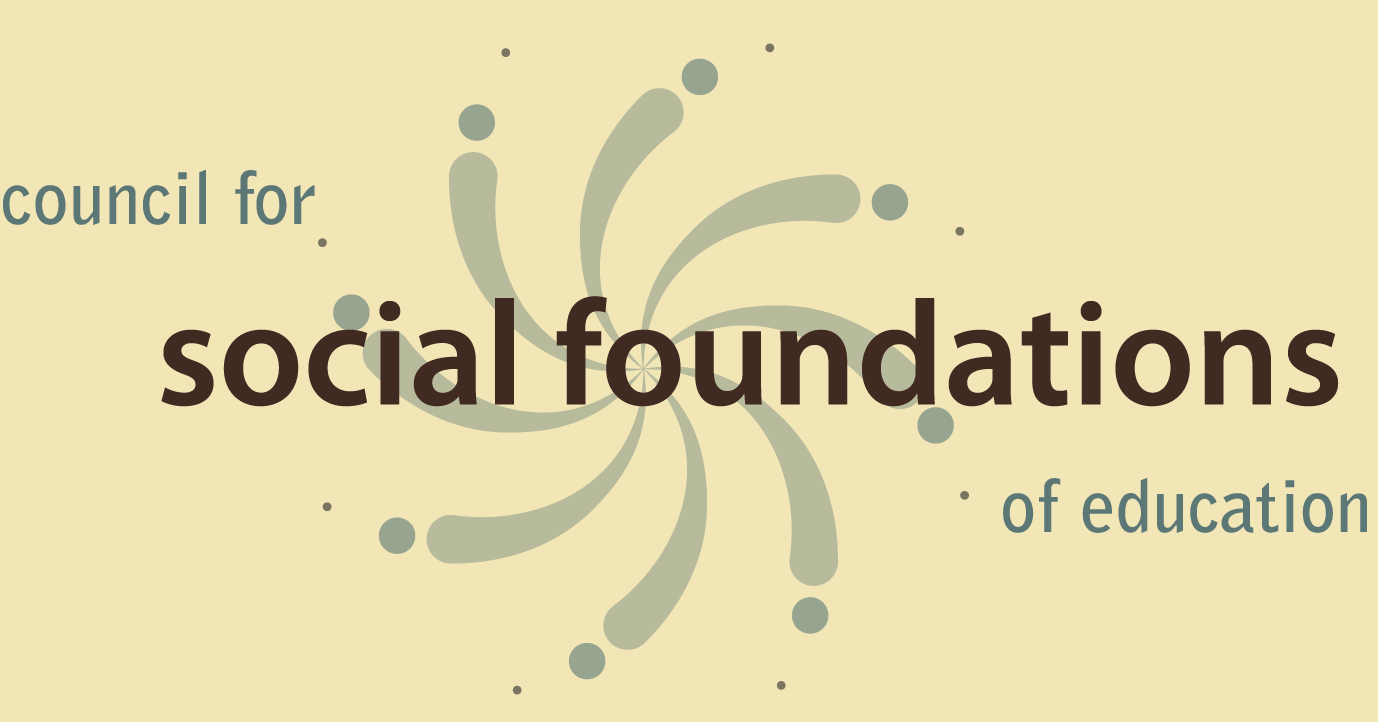
Education is growth.
Education is, not a preparation for life;
education is life itself.
-John Dewey
Introduction Matrix I II III IV V VI VII VIII
Standard V
Joint
Graduate Degrees and Programs Involving Foundations of Education Educational
Studies, and Educational Policy Studies
Joint masters or doctoral programs involving foundational studies shall include instruction in at least three of the following disciplines or areas of study: history of education, philosophy of education, sociology of education, religion and education, anthropology and education, politics of education, economics of education, comparative and international education, cultural studies in education, gender studies in education, educational studies, and educational policy studies.
Discussion of Standard V
This Standard seeks to ensure common general qualifications in foundational studies among candidates in graduate programs jointly controlled by faculty in Foundations of Education, Educational Studies, or Educational Policy Studies and faculty in other academic units. At a growing number of institutions of higher education, joint graduate programs have been established involving faculty in Foundations of Education, Educational Studies, or Educational Policy Studies. Illustrative areas of emphasis or concentration in joint programs are: adult education; alternative education; the arts; bilingual education; counseling and guidance; community development; computer programming; curriculum and instruction; early childhood education; educational administration; educational planning and management; educational technology; environmental sciences; futuristics studies; human relations; industrial and labor relations; journalism; law; library media; linguistics; literature; mental hygiene; multicultural education; museum education; public health; public policy; reading; research, measurement, and evaluation; social services; special education; teaching English as a second language; theater; urban education; and women’s studies.
Such joint programs can prepare individuals for college and university faculties and for academic and administrative positions within community colleges, public and private schools, research bureaus, religious institutions, and public and private service agencies. In these joint programs, instruction in foundational studies is at a level substantially beyond that required in initial teacher certification and/or licensure programs and includes preparation in at least three of the following disciplines or areas of study: history of education, philosophy of education, religion and education, sociology of education, anthropology and education, politics of education, economics of education, educational psychology, comparative and international education, cultural studies, gender studies, educational studies, and educational policy studies. Such instruction is designed to advance students’ abilities to interpret and communicate the content and context of education appropriate to the doctoral or masters level. Students are to produce demonstrable evidence of disciplined writing, acquire skill and understanding in appropriate research methodologies, and participate in field experiences supportive of program goals. Field experiences, including internships, are to be planned, supervised, and evaluated collaboratively by faculty qualified under Standard VIII and appropriate field personnel.